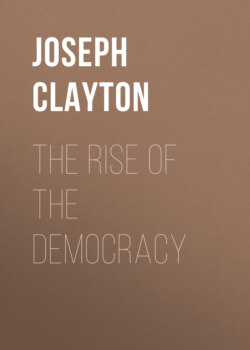Читать книгу The Rise of the Democracy - Joseph Clayton - Страница 20
На сайте Литреса книга снята с продажи.
Education to Democracy
ОглавлениеApart from the direct political education to democracy, it is well to note the other agencies that have been at work, preparing men and women for the responsible task of national self-government.
In the Middle Ages the religious guilds and the trade guilds, managed by their own members, gave men and women a training in democratic government. The parish, too, was a commune, and its affairs and finances were administered by duly elected officers.[2]
But the guilds, with their numerous almshouses and hospitals, were all suppressed early in Edward VI.'s reign, and their funds confiscated. As for the parish, it was shorn of all its property, save the parish church, in the same reign, and its old self-governing life dwindled away to the election of churchwardens.
It was not till the beginning of the nineteenth century that the working classes, by the formation of trade unions, once more took up the task of education in self-government. From that time onward, through trade unions, co-operative societies, and friendly societies, with their annual conferences and congresses, a steady training in democracy has been achieved; and our Labour Party of to-day, with its Members of Parliament, its members of county and district councils, and its Justices of the Peace, would hardly have been possible but for this training. Other agencies may be mentioned. The temperance movement, the organisation of working-men's clubs, and the local preaching of the Nonconformist Churches—particularly the Primitive Methodist denomination—have all helped to educate workmen in the conduct of affairs, and to create that sense of personal responsibility which is the only guarantee of an honest democracy.
